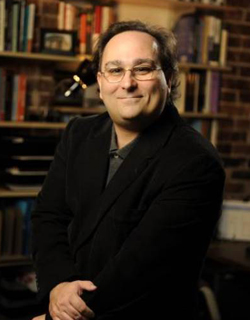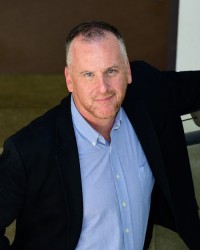The meeting will begin on Thursday, May 5 at 5:45 pm with welcome remarks from ACLS President Pauline Yu, followed by a session entitled “Extending the Reach of the Humanities PhD.” A reception and buffet dinner will follow at 7:00 pm.
Pauline Yu will start off the events on Friday, May 6 at 9:00 am with her report to the Council. There will be micro reports from ACLS member societies, the Meeting of the Council, and presentations by ACLS Fellows. William “Bro” Adams, chairman of the National Endowment of the Humanities, will be the luncheon speaker.
The plenary speaker for the first afternoon program session will be Darren Walker, president of the Ford Foundation. The remainder of the afternoon will consist of a set of breakout sessions on the following topics: (1) constructive approaches for adjunct faculty, (2) PhD career diversification, (3) creative approaches to annual meetings, (4) inequality and disparity in the humanities, (5) advocating for the humanities: a new toolkit for scholarly societies, and (6) democratic engagement in teaching and learning.
At 6:00 pm, the 2016 Charles Homer Haskins Prize Lecture will be delivered by Cynthia Enloe, research professor in the Department of International Development, Community, and Environment at Clark University. There will be an opportunity to meet Professor Enloe at the reception in her honor following the lecture.
Hotel Information: Renaissance Arlington Capital View Hotel, 2800 South Potomac Avenue, Arlington, VA, 22202; Tel: (703) 413-1300
SCHEDULE
Thursday, May 5
Extending the Reach of the Humanities PhD – 5:45-7:00 pm, Salon 5-7
Reception – 7:00-7:30 pm, Studio B
Buffet Supper – 7:30-9:30 pm, Salon 1-3
Friday, May 6
Executive Committee of the Delegates and New Delegates Breakfast Meeting (members of this group only) – 7:30-8:30 am, Studio A
Continental Breakfast – 7:45-9:00 am, Salon 1-3
Report of the President – Pauline Yu
9:00-9:30 am, Salon 4
Micro Reports from Member Learned Societies – 9:30-9:45 am
Meeting of the Council – 10:00-10:30 am
Emerging Themes and Methods of Humanities Research: Discussion with ACLS Fellows – 10:30 am-12:00 noon
Pre-Lunch Reception – 12:00 noon-12:30 pm, Salon Foyer
Luncheon Speaker – William “Bro” Adams, chairman, National Endowment for the Humanities
12:30-2:00 pm, Salon 1-3
Plenary Session – Darren Walker, president, Ford Foundation
2:00-3:00 pm, Salon 4
Breakout Sessions – 3:00-4:00 pm
1) Constructive Approaches for Adjunct Faculty – Salon 1
2) PhD Career Diversification – Salon 2
3) Creative Approaches to Annual Meetings – Salon 3
4) Inequality and Disparity in the Humanities – Studio A
5) Advocating for the Humanities: A new toolkit for scholarly societies – Studio B
6) Democratic Engagement in Teaching and Learning – Studio C
ACLS Board of Directors Annual Meeting Review (members of this group only) – 4:00-4:30 pm, Boardroom
The Charles Homer Haskins Prize Lecture – 6:00-7:00 pm, Salon 4
Cynthia Enloe, Department of International Development, Community, and Environment, Clark University
Reception and Buffet Supper – 7:00-9:30 pm, Salon 1-3
Saturday, May 7
Breakfast – 7:30-9:30 am, Salon 1-3
Conference of Administrative Officers (CAO) Spring Meeting (members of this group only) – 8:30-11:30 am, Studio F
Optional CAO Session TBD (members of this group only) – 11:30 am-12:15 pm, Studio F



